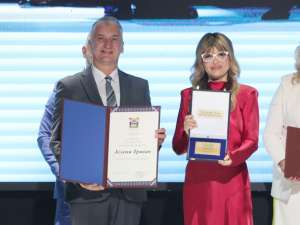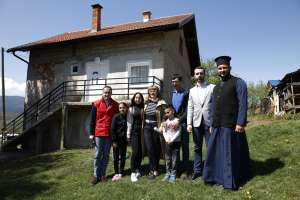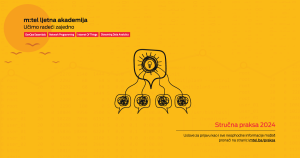SARAJEVO, February 7 (FENA) - An urbanist from Vienna, Roland Krebs said in an interview with FENA that the future of our cities will be without cars or at least with fewer cars.
"We have to understand that cars are mostly parked and do not move around the city. Ask yourself how many times a day do you use a car? So, we have a problem of efficiency, but also justice - why a private car could be parked in a public space without being almost paid at all, while pedestrians and cyclists have no space to move, which becomes a very obvious problem in days of health crisis and curfew," warns Krebs.
He pointed out that the future of our cities will be without cars or at least with fewer cars because it does not make a real difference if we electrify our cars - the problem of space will be the same.
"It is also clear that people love their cars, they are status symbols, so their ban is a rather unpopular decision. However, our cities lack an attractive space for walking, sitting and relaxing - we lack comfortable spaces, especially in the old parts of cities. Many cities like Belgrade, Vienna, London now ban cars in downtown centers - they charge entry to cities (in London) or simply will no longer provide the necessary parking in a public space. In Belgrade, they have created extensive pedestrian zones in the old part of the city," Krebs added.
He stressed that perhaps the best solution is to reduce traffic with efficient public transport and/or with good solutions for walking and cycling.
"For our children and the elderly, a car-free environment is attractive and necessary, and also increases the comfort of living in our cities. Everything should be closer and more easily accessible on foot and by bicycle, so we should focus on urban development that is dense and compact, and multifunctional. Seventy years ago, our cities were compact and permeable, and now in 2021, we should reconsider our car addiction and return to compact development schemes and provide enough green space for people," explains Krebs.
He specified that car ownership in Vienna currently stands at 374 per 1,000 inhabitants (2020), and in 2004, there were almost 500 cars per 1,000 inhabitants.
"Vienna has a strict parking policy and offers functional public transport. Today it is more convenient to walk, ride a bike or use public transport to central places in Vienna, and this applies not only to the middle class because even the President of the Republic uses the tram and the metro because it is more convenient. The streets are being filled with trees and larger spaces for pedestrians, and the bike paths are constantly improving," said Krebs.
However, he added that it has taken a long time to take such measures, and this would especially the case with the outskirts of cities.
"People are afraid of losing the right to park in a public space. The better the public transport, the easier it is to move to car-free areas. And we need much better urban planning of cities, not only in elegant areas but also in mono-functional urban areas," Krebs explained.
In his opinion, most people today would like to live in a house with a large garden around them, and statistics prove that the prices of such real estate in cities are rising during the pandemic.
However, Krebs points out that this is by far the most inefficient scenario of urbanism - economically, due to high infrastructure costs, and ecologically due to dependence on cars, and socially, due to community segregation.
"What our cities need today is compact growth and diverse usability, which means that five minutes from your place of residence there should be shopping facilities, service activities, cultural facilities, etc., which can be reached on foot or by bicycle. We need to overcome car addiction and build only where public transportation is available. This also applies to industry and production, as it should be kept in cities closer to where people live, wherever it is possible for the purpose of lower emissions, Krebs said in an interview with FENA.
(FENA) S. R.









